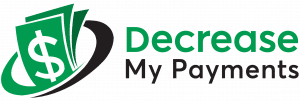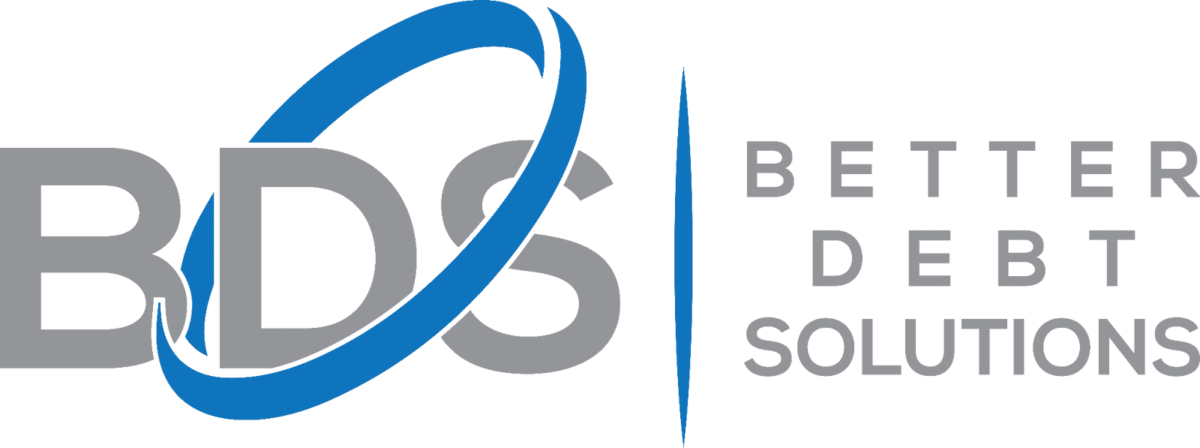Top 5 Best Debt Relief Companies
 Financial uncertainty weighs heavily as unpredictable waves continually batter budgets. If unmanaged debt has you drowning in a sea of monthly minimums, help—and hope—have arrived.
Financial uncertainty weighs heavily as unpredictable waves continually batter budgets. If unmanaged debt has you drowning in a sea of monthly minimums, help—and hope—have arrived.
The reviewed companies are known for their accredited debt relief services, offering solutions such as debt settlement and debt consolidation loans. These services are part of broader debt relief programs designed to help individuals manage and reduce their debt.
It’s important to consider how different debt relief options can impact your credit report, as negative information such as late payments or settlements can remain on your credit report for several years.
This review logs the top three debt captains proven through insured industry excellence to ease the angst. Reviews highlight specialized services seamlessly streamlining reimbursement suited to any budget or baggage. Personal profit planners pilot willing wanderers to shores sustaining stability and smiles ahead.
Tackle debt’s drag with the drive to disembark its detrimental domination for good. Dare to dream beyond its damning of dreams: your rescue awaits inside.

Understanding Debt Relief
At its core, debt relief programs mean trimming down what you owe so the load is lighter to lift. Paired with an ethical company, it can put you on the road to financial balance and peace of mind. Here’s typically how it works – they interface with creditors to settle tabs, including credit card debt, for less than full price.
However, it’s important to note that debt relief can impact your credit report, with settled debts potentially being marked as unpaid collections.
This smoothing could lower rates, waive charges, or agree to a lump sum that’s not the whole enchilada.
Of course, debt relief impacts your score and requires staying on a payment plan. But for many maxed-out on multiple cards or loans, it’s preferable to bankruptcy and regaining command. Working with a reputable, experienced pro enormously boosts your odds of making it work.
Debt Relief Types & Their Distinguishing Details
Various vessels voyage voyagers to viability, each with distinct designs suiting diverse dilemmas. Debt relief options include debt settlement, which groups gigantuous obligations into one raft’s reduced repayment through renegotiating totals lowered liberally.
Each type of debt relief can have different effects on your credit report, with debt settlement often resulting in negative marks that can stay on your credit report for several years.
Negotiators effectively ease enormousness. Debt consolidation ferries many monthlies into a single, simplified sortie harmoniously deployed through singular synchronized strategies. For example, a debt consolidation loan can combine multiple debts into one monthly payment, making it easier to manage. Such streamlining smoothens storms.
Debt management harbor masters deftly demystify interests’ inbound influences, choreographing calmer courses. Counselors coach capital’s optimized orchestration towards solvency sustainably. Clients accept additional assistance in acquiring aptitudes and forever allaying arrays afterward.
Bankruptcy scuttlers remain the last landfalls, torpedoing foundering ships and torpedoing credit’s establishment for seasons. Before such final shores, carefully consider the ramifications. Preferably, relief rises through the first tiers, avoiding lasting lockdowns.
Read More: How to Fix Your Credit Score: 12 Actionable Steps to Raise Your Credit Score
Debt Settlement vs. Debt Management Plans
Debt relief solutions encompass various approaches to managing debt, including debt settlement and debt management plans. Debt settlement’s dingy direct parleys lowered values, whereas coordination’s battleships maneuvered masterfully. Both jettison weights buoy debtors yet impact the surface through reputation monitoring. Settlement steers steeper, shortened sails offset by savings’ long-term swells for those willing to wait.
Debt settlement can lead to negative entries on your credit report, while debt management plans typically result in more favorable credit report outcomes due to consistent monthly payments.
The debt settlement process involves negotiating with creditors and setting aside money to settle. This can impact credit scores and require accumulating savings for negotiations.
Management maneuvers mellower, middling missions suiting subdued monetary moods cherishing consistency over savings’ vistas. Profiles pilot preferable provisions.
While settlement grants deeper discounts, depressing delinquencies shorter, management maintains credit conditions long, lengthening lengths and total costs. Calmly consider character, duration tolerance, and financial forecasting the favored flagship.

Evaluating Debt Relief Rigorously
Choosing captains deserves diligent duty inspecting infrastructure, industry integrations, and customer commentary. When evaluating debt relief programs, it is crucial to choose reputable debt settlement companies.
When evaluating debt-relief options, consider how each will affect your credit report, as this can influence your ability to qualify for future financial products. Successful services sail standardized alliances, ensuring assistance accessibility and transparency prized through stormy straights.
Professionalism paired perfectly with pain eases episodes. Responsive rounding of the flows raises relationships, while reviews reveal reliability. Standards secured, superior sanctuaries surface.
Types of Debt Relief
Several debt relief options exist, each with advantages for certain debt types and situations. The most common are:
- Debt settlement: Negotiating lump sum payments that are less than total balances owed to unsecured creditors like credit cards, medical bills, or other unsecured debts.
- Debt consolidation: Taking out a new loan to pay off multiple debts, consolidating them into one lower monthly payment.
- Debt management plans: Working with a non-profit credit counseling agency to make affordable monthly payments towards debts over 3-5 years while interest is reduced or waived.
- Bankruptcy: A legal process providing financial freedom from most or all debts but severely hurting your credit for 7-10 years.
Debt settlement, for example, can result in negative marks on your credit report, while debt management plans may have a less severe impact.
Choosing the best approach with the size and types of debt, income level, and long-term goals. Bankruptcy is a last resort, while debt management or consolidation suits lower unpaid balances. Debt settlement typically works for substantial unsecured debt burdens.
Read More: Debt Settlement: How It works, Risks and Drawbacks
Debt Settlement vs. Debt Management Plans
Debt relief solutions include debt management and debt settlement plans, which are two frequently used strategies. While both negotiate with creditors, they differ significantly:
– Debt settlement aims to settle debts for a lump sum less than full balances. It may take 2-4 years to complete. Creditors may report settled amounts as unpaid collections on credit reports.
– Debt management plans have debtors make consistent monthly payments towards balances, gradually paying them off over time. Creditors may freeze interest/fees. Payment history is reported to credit bureaus and reflected on credit reports.
Debt settlement can lead to negative entries on your credit report, while debt management plans typically result in more favorable credit report outcomes due to consistent monthly payments.
Debt management tends to affect credit less due to on-time monthly payments. However, debt settlement may take 3-5 years to complete versus 2-4 years. Debt settlement often achieves much larger savings since balances are reduced, whereas management plans do not lower what is owed. The best choice depends on individual financials and goals.

What Is Debt Settlement?
Debt settlement is a financial strategy where a third-party company negotiates with creditors to reduce the total amount of debt owed by a consumer. This approach can be a lifeline for individuals struggling to keep up with their financial obligations and seeking a path to becoming debt-free. Debt settlement companies work diligently with creditors to reach a mutually agreeable settlement, often resulting in a significant reduction in the debt burden.
How Debt Settlement Companies Work
Debt settlement companies operate by negotiating with creditors on behalf of the consumer. The process begins with a thorough assessment of the consumer’s financial situation to determine the most effective strategy for debt settlement.
Once a plan is in place, the company contacts the creditors to negotiate a settlement, which may involve a lump sum payment or a series of structured payments. The ultimate goal is to reduce the overall debt and provide the consumer with a more manageable payment plan, easing the financial strain.
Pros and Cons of Debt Settlement
Debt settlement comes with its own set of advantages and disadvantages. Here are some key points to consider:
Debt Settlement Costs and Fees
Debt settlement companies usually charge fees for their services, which can range from 15% to 25% of the total debt. These fees can be structured as upfront payments or spread out over time, adding to the overall cost of the debt settlement process. Additionally, consumers should be aware that forgiven debt is considered taxable income, which may result in additional tax liabilities.
Impact on Credit Score
Debt settlement can have a significant impact on a consumer’s credit score, as settled debts are often reported as such rather than as paid in full. This can lead to a decrease in credit score, making it more challenging to obtain credit in the future. However, the extent of the impact can vary based on individual circumstances and the type of debt being settled.
Notably, some debt settlement companies, such as National Debt Relief, Accredited Debt Relief, and Freedom Debt Relief, have established reputations for providing effective debt settlement services. These companies may offer viable options for consumers struggling with debt. Nevertheless, it is crucial to conduct thorough research and carefully review the terms and conditions of any debt settlement program before committing.
By understanding the nuances of debt settlement and evaluating the pros and cons, consumers can make informed decisions about their financial future and work towards achieving a debt-free status.
Read More: How to Get out of Debt With The Snowball Method
Key Factors in Evaluating Debt Relief Companies
When considering debt relief programs, the company you partner with is crucial. Look for those demonstrating a proven track record through factors like:
– Customer ratings and reviews on online platforms such as TrustPilot and the Better Business Bureau to assess service quality.
– Transparency regarding fees and policies clearly explained on their website and paperwork. When evaluating a debt settlement company, ensure they provide detailed information about their fees and policies upfront.
– Range of services to suit varying debt situations like credit card relief or tax debt assistance.
– Success rates measured by average percentages of enrolled debts successfully relieved based on regulatory reports.
Consider how each company’s approach to debt relief will affect your credit report, as this can have long-term implications for your financial health.
Additionally, reputable organizations emphasize personalized solutions and responsive support throughout the process. They are accredited by recognized associations and follow pertinent consumer protection laws. Checking licensure is one way to verify a company’s legitimacy and commitment to standards of practice.

Overview of the Top 5 Debt Relief Companies
After carefully analyzing offerings, services, and customer feedback, these three companies rose to the top of the 2024 debt relief landscape. Each brings diverse strengths that address varied financial circumstances through their debt relief programs.
Each company’s approach to debt relief can have different effects on your credit report, so it’s important to understand these implications when choosing a provider.
Freedom Debt Relief is renowned for its comprehensive debt relief services, including monitoring capabilities, online tools, knowledgeable support staff, and high customer satisfaction. The company has a strong reputation for helping with various types of debts and offers a program guarantee and transparent fees.
National Debt Relief is a legitimate company providing debt relief services with notable certifications and awards. It is praised for its fee transparency, high customer satisfaction scores, and effective debt settlement process. Comparisons with other debt relief companies often highlight its competitive fee structure and overall reliability.
Better Debt Solutions
Better Debt Solutions has helped over 60,000 clients since its establishment in 2004 through its comprehensive debt relief programs. It proposes a complete suite of debt relief services, including settlement, consolidation, and counseling. Customers appreciate the personalized attention from representatives. Through tailored programs, Better Debt Solutions resolves, on average, 85% of enrolled debt within 2-4 years.
Better Debt Solutions maintains an A+ rating with the BBB and transparency in fees and policies on its website, aside from its notable reviews and ratings. It undergoes regular compliance audits to protect consumers. Success stories highlight the significant savings achieved, such as settling debts for less than half of what was originally owed. Better Debt Solutions’ long history and commitment to clients have earned its position as the top choice.
Debt Care Plus
Debt Care Plus delivers quality debt relief programs through a caring and responsive support team. Licensed specialists conduct brief assessments to customize affordable debt management plans, reducing monthly payments by an average of 40%. Creditors work with the plans, potentially lowering interest or waiving fees for manageable repayment over 24-48 months.
Positive reviews consistently commend Debt Care Plus representatives for attentive guidance. Clients note stress relief from taking control of finances and regaining stability through the step-by-step process. The Council for Accreditation in Counseling and Related Educational Programs acknowledges Debt Care Plus for providing professional financial counseling services. Their solutions benefit individuals facing all types of debt issues.
Freedom Debt Relief
Freedom Debt Relief is renowned for offering a comprehensive suite of debt relief services, including debt settlement, debt consolidation, and personal loans. Since 2002, its proprietary programs have helped over 1 million Americans resolve more than $18 billion in unsecured debt.
Clients appreciate Freedom Debt Relief’s personalized debt assessments and customized repayment plans, which take an average of 24-48 months to complete. Through skilled negotiations, they achieve settlement agreements, reducing clients’ total balances by 40-60% on average.
Freedom Debt Relief also earns high marks for its encrypted online account portal and around-the-clock client support. The portal provides real-time updates on settlement progress and program terms, and success stories demonstrate the significant interest savings achieved.
Mitigately
Mitigately stands out with AI-powered tools that identify ideal debt relief solutions within just 6 minutes. Specializing in high-balance credit card debt over $10,000, they negotiate settlements averaging 60% off totals.
Clients conveniently track personalized 4-7-month programs through an interactive online portal. Representatives assist with expert repayment counseling. Since 2011, Mitigately has helped resolve $1 billion in client debt obligations.
Reviews praise the organized debt relief process and affordable fixed-fee pricing. Some note Mitigately “saved them thousands.” The streamlined system and dedicated client advocates make the debt landscape navigable. Their innovative tools produce results efficiently.
ClearOne Advantage
ClearOne Advantage distinguishes itself by specializing in debt relief programs, particularly debt settlement assistance. With a team negotiating expertly on clients’ behalf, they achieve settlements, resolving an average of 60% of enrolled balances since 2011.
Clients appreciate ClearOne Advantage’s transparent communication and accommodating policies. From simplified application through to resolution, representatives provide informative guidance.
Success stories demonstrate substantial interest and fee savings achieved through strategic negotiations, cementing ClearOne Advantage among the top choices for significant credit card and personal loan debt relief.
This listing highlights some of the industry’s most established and effective companies based on research of customer reviews, services offered, success rates, and online presence. Do your due diligence to determine the best fit for your specific debt situation and financial goals. Research options thoroughly to select the best program fit.
Here are some common pitfalls to avoid when choosing a debt relief company:
- Do not verify the company’s credentials and licenses. Make sure they are properly registered and licensed to operate in your state.
- Focusing only on upfront fees without considering the company’s overall success rates. Cheaper isn’t always better if they aren’t effective at actually relieving debt.
- Choosing a company that doesn’t have experience or a proven track record settling certain types of debt like taxes, student loans, medical bills, etc. Some specialize, while others are generalists.
- Failing to read reviews from independent sources, not just what’s on the company’s website. Look for common complaints.
- Relying solely on promised savings percentages without understanding the actual program details and timeline. Reduced debt isn’t guaranteed and could take 1-3 years.
- You do not fully understand the debt settlement process and its impact on your credit. This will temporarily hurt your credit until accounts are paid in full and settled on your reports.
- Not clarifying all applicable fees upfront, such as setup costs, monthly service fees, or non-refundable retainer fees if you terminate early.
- Working with companies that don’t provide counseling or financial education to help address the underlying causes of debt. Recurrence is likely without lifestyle adjustments.
- Failing to ask how long the company has been in business. Newer entities may lack experience negotiating with creditors to produce relief.
- Choose a firm that is not transparent about settlement offers or payment plans or doesn’t provide consistent progress updates. Trust should be paramount.
Debt Settlement:
- Works by negotiating with creditors to settle debts for less than the full balance owed, often 30-50% less.
- Payments go to debt settlement companies, who will negotiate with creditors after lump sum payments are made.
- Requires stopping payments to creditors while negotiating, which damages credit for 1-2 years.
- Best for those who can afford monthly payments to a debt settlement fund over 2-3 years.
Debt Consolidation:
- Involves taking out a debt consolidation loan to pay off high-interest debts like credit cards.
- The new loan has a lower interest rate than the existing debt, reducing monthly payments.
- Payments from the consolidation loan go directly to creditors each month.
- Credit scores may dip slightly when a new loan opens but recover faster than when debt is settled.
- Best for those with good credit who want a single monthly payment at a lower rate.
Debt settlement aims to lower the total debt owed, while debt consolidation reorganizes payments at a lower cost but keeps full balances owed. Settlement is risky but rewards those deeply in debt, while consolidation preserves credit but carries debt in full.
Conclusion: Charting Your Course to Financial Freedom
Facing debt alone seldom leads to resolution. With informed selection, debt relief programs offered by a debt relief company become the most valuable ally in regaining control of finances and achieving a debt-free status.
For too long, the weight of unpaid bills and mounting interest has dragged down spirits like an anchor in a storm. Each month brings fresh worries that today’s small leak will become tomorrow’s sinking ship, with nowhere left to turn as the waters rise.
But there is hope on the horizon for those willing to raise a flag of distress. As reviewed, industry luminaries like Better Debt Solutions, Debt Care Plus, and Lendvia have navigated thousands to safety through treacherous financial straits, rescuing budgets sinking under six-figure loads with average lifeline throwbacks slashing up to 70% off what the sea of debt demands.
While some outfits handle singular vessels like taxes or loans, the highest-rated regard each case impartially – whether the S.S. Credit Cards springs a leak or cargo hold Medical Bills springs a sprung. With transparency as their compass and financial education as their rudder, they empower captains to repair damage and avoid foundering again through shoals of poor planning or squandered windfalls.
Have a Debt Management Plan with a Perfect Partner
So if waking each dawn feeling swamped serves only to exhaust already further drained reserves, calling upon such seasoned relief offers the surest path home through debt management plans. Initial consultations are complimentary voyages, and programs accepted demand only minimal down payments to begin bailing waters compared to what drowning alone may cost in the end.
And should you board with an established name, rest confident their seasoned crews will man your pumps until solid shore appears once more, Treasury coffers restored to full again. From there, charting spending follows desire alone, not the desperation driving one leaking lifeboat to the next taxing venture.
Calmer seas and sunnier skies surely lie ahead – so take heart and let the search and rescue commence. Why drift aimlessly when top operators stand ready to tow your ship safely ashore?
Sponsored Advertising Content:
Advertorial or Sponsorship User published Content does not represent the views of the Company or any individual associated with the Company, and we do not control this Content. In no event shall you represent or suggest, directly or indirectly, the Company's endorsement of user published Content.
The company does not vouch for the accuracy or credibility of any user published Content on our Website and does not take any responsibility or assume any liability for any actions you may take as a result of reading user published Content on our Website.
Through your use of the Website and Services, you may be exposed to Content that you may find offensive, objectionable, harmful, inaccurate, or deceptive.
By using our Website, you assume all associated risks.This Website contains hyperlinks to other websites controlled by third parties. These links are provided solely as a convenience to you and do not imply endorsement by the Company of, or any affiliation with, or endorsement by, the owner of the linked website.
Company is not responsible for the contents or use of any linked website, or any consequence of making the link.
This content is provided by New Start Advantage LLC through a licensed media partnership with Inquirer.net. Inquirer.net does not endorse or verify partner content. All information is for educational purposes only and does not constitute financial advice. Offers and terms may change without notice.








